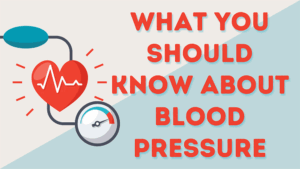Introduction
The flu, or influenza, is a common but often disruptive illness affecting millions worldwide every year. One of the most frequently asked questions is: “How long does the flu last?” Understanding the typical duration of the flu is important for managing symptoms effectively and knowing when to seek medical help. In this post, we’ll explore how long flu symptoms generally last, the factors that affect recovery time, and tips to help you get better faster.
What Is the Flu?

The flu is a contagious respiratory illness caused by influenza viruses that infect the nose, throat, and sometimes the lungs. It can cause mild to severe illness and, at times, lead to serious complications. The flu spreads mainly through droplets when an infected person coughs, sneezes, or talks.
According to the Centers for Disease Control and Prevention (CDC), seasonal flu epidemics occur annually, with symptoms that include fever, cough, sore throat, body aches, and fatigue.
How Long Does the Flu Last?
For most healthy individuals, flu symptoms typically last between 3 to 7 days. However, some symptoms such as fatigue and cough may linger for up to two weeks or more.
Typical Flu Duration Breakdown:
| Symptom | Average Duration |
|---|---|
| Fever and chills | 3 to 5 days |
| Cough and sore throat | 7 to 10 days |
| Fatigue and weakness | 1 to 2 weeks or more |
It’s important to note that children, elderly people, and those with weakened immune systems might experience longer or more severe symptoms.
When Do Flu Symptoms Start?
Flu symptoms usually appear suddenly within 1 to 4 days after exposure to the virus. This period is called the incubation period, during which a person may already be contagious even before symptoms develop.
Flu vs. Common Cold: What’s the Difference?
Understanding the difference between flu and a common cold helps you take appropriate measures.
| Flu | Common Cold |
|---|---|
| Sudden high fever | Mild or no fever |
| Severe body aches and fatigue | Mild body discomfort |
| Dry cough | Mild cough |
| Symptoms last longer (1-2 weeks) | Symptoms resolve quickly |
Treatment and Care for the Flu
There is no specific cure for the flu, but several treatments can help ease symptoms and speed up recovery:
Rest: Give your body time to heal by getting plenty of sleep and avoiding strenuous activity.
Hydration: Drink plenty of fluids like water, herbal teas, and soups to prevent dehydration.
Over-the-counter Medications: Use fever reducers and pain relievers like acetaminophen or ibuprofen, following medical advice.
Antiviral Medications: In some cases, doctors may prescribe antiviral drugs which can reduce severity and duration if started early.
Nutritious Diet: Eating healthy foods helps boost your immune system.
How to Prevent the Flu?
Prevention is always better than cure. The most effective way to protect yourself is by getting the annual flu vaccine. Additional preventive measures include:
Regular handwashing with soap and water
Wearing masks in crowded places
Avoiding close contact with sick individuals
Covering mouth and nose when coughing or sneezing
Maintaining a healthy lifestyle
For more tips, visit the World Health Organization (WHO) Flu Fact Sheet.
Personal Experience: My Flu Story
Last year, when I caught the flu, my fever lasted about four days while the fatigue lingered for over a week. I ensured plenty of rest, stayed hydrated, and ate nutritious food. This personal experience taught me the importance of patience and self-care during recovery. Everyone’s flu experience varies, but good care can make a significant difference.
When Should You See a Doctor?
Seek medical attention if you experience:
Difficulty breathing or shortness of breath
Chest pain or pressure
Persistent high fever for more than 3-4 days
Severe weakness or dizziness
Confusion or difficulty waking up
Persistent vomiting or diarrhea
Conclusion
So, how long does the flu last? Generally, flu symptoms stay for 3 to 7 days, but full recovery may take one to two weeks. Taking care of yourself by resting, hydrating, and following medical advice helps speed up healing. Remember, flu can be serious for vulnerable groups, so timely action is essential.
Frequently Asked Questions (FAQs)
1. How is flu different from COVID-19?
Both share similar symptoms but are caused by different viruses. Testing is necessary for a definitive diagnosis.
2. Can flu be fully cured?
Yes, most people recover completely without complications.
3. Is exercising during flu okay?
No, rest is crucial. Avoid strenuous activities until fully recovered.
Call to Action (CTA)
Have you ever had the flu? How long did it take you to recover? Share your experience in the comments below! Don’t forget to subscribe to our blog for more health tips and updates.







